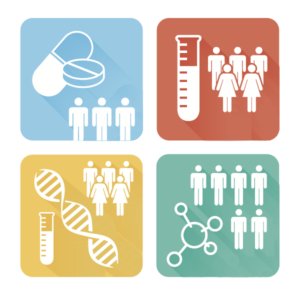Volunteer Guide to taking part in a Clinical Trial

Volunteer Guide to Taking Part in a Clinical Trial at BioPharma Services
Clinical trials are an essential part of medical science research, a driving force for innovative advancements in preventing, detecting and treating disease and other health issues. Trials aim to determine if new drugs or combinations of drugs are effective and safe, discover different ways to utilize existing treatments and develop new medical devices or surgical procedures. They also examine other aspects of care, like enhancing quality of life for people with chronic illnesses and evaluating biopharmaceutical human abuse potential.
Medical science needs clinical research trials, and clinical research trials need volunteers. While many people understand that and may be interested in becoming a clinical trial volunteer, they may not be fully aware of the true benefits of clinical trials or lack knowledge of just what is involved in participation.
According to the Coalition for Clinical Trials Awareness, participation offers dual benefits for volunteers. The first is potential personal benefit. Participants may experience improved disease outcomes and could develop better health if they receive otherwise-unavailable medical therapies. The second is societal benefit. By moving a new therapy closer to market, clinical trial participation helps increase access for patients who will benefit from the new treatment option.
The United States’ National Institutes of Health describe similar benefits of clinical trial participation. These include helping others by contributing to knowledge about new drugs or procedures and gaining access to new research treatments before they are widely available, as well as receiving regular and careful medical attention from doctors and other health professionals during the study.
The opportunity to volunteer for a clinical trial is open to a wide range of people and populations. For an effective trial, researchers include participants from different age groups, ethnicities, health statuses and more. They need to see how different people respond to different treatments.
Healthy volunteers assist clinical trial researchers in developing new knowledge. Alternatively, patient volunteers have a known health problem and take part in research to better understand, diagnose or treat that disease or condition.
While clinical trial participation is important and rewarding, many people have questions or uncertainty about volunteering and may not realize what is involved. This guide is a resource of information about clinical trials, the process of participation and other things volunteers should know.
About Clinical Trials
Clinical trials are defined by the World Health Organization as “a type of research that studies new tests and treatments and evaluates their effects on human health outcomes.” They are used to test the safety and effectiveness of drugs and medical devices. Basically, every medicine or vaccine on the market once was the subject of a clinical trial.
There are numerous reasons clinical trials are conducted, from determining whether a new drug or device is safe and effective for people to learning how to safely use a treatment in a population for which it was not previously tested. Another purpose is to study different ways to use standard treatments or current, approved treatments so that they can become more effective, easier to use or decrease certain side effects.
In the United States and Canada, most clinical trials for drugs performed prior to the government approval process are randomized, double-blind and placebo-controlled, which is a combination known in medicine as the gold standard. There are various stages of clinical trials, and each one is led by a principal investigator, who is often a medical doctor, along with a research team comprising physicians, nurses, social workers and other health care professionals.
One type of clinical trial is a human abuse liability (HAL) study. Also referred to as Human Abuse Potential (HAP) studies, they are designed to evaluate whether a new drug product has abuse potential, including among individuals with a history of recreational use of drugs of abuse. These Phase 1 clinical trials studies consist of pharmacology assessments, which provide unique information relevant to central nervous system-active drugs and are an important component of product labeling and scheduling recommendations of new drugs.
Concerns About COVID-19
If you’re interested in volunteering to participate in a clinical trial but are wary of doing so during the coronavirus pandemic, you’re not alone. Nearly 1 in 5 U.S. patients with cancer reported that they were less likely to enroll in a clinical trial due to fears of COVID-19 exposure.
However, regulatory agencies in both Canada and the U.S. have proactively taken steps to ensure that patients participating in clinical trials are exposed to as little risk as possible amid the pandemic. The National Cancer Institute and the U.S. Food and Drug Administration (FDA) are allowing for remote consent and virtual (telehealth) visits, while Health Canada has developed a new regulatory pathway through an interim order for clinical trials on medical devices and drugs relating to COVID-19.
Steps for a Clinical Trial Volunteer
The first step to participating in a clinical trial is finding one that matches your interests, health status and geographic location. On ClinicalTrials.gov, there are currently 367,057 registered research studies in all 50 U.S. states and in 219 countries, including more than 4,500 for COVID-19. Health Canada’s Clinical Trials Database is available to assist Canadians in finding clinical trials, which are required to follow Division 5 of the Food and Drugs Regulations and good clinical practices.
Once you’ve come across a trial in which you’d like to participate, you can contact the trial or study coordinator or fill out any necessary forms to add your name to a database of potential enrollees. Simply follow the instructions for that particular clinical trial.
Next, review eligibility criteria to find out if you qualify for that particular study. Your eligibility may be based on your age, gender, overall health, type and stage of a disease, treatment history and other conditions. It’s also important to understand the protocol for the clinical trial, including:
● The types of volunteers who may enter the study
● The schedules of tests and procedures
● The drugs involved
● The dosages or amount of the drug
● The length of the study
● What the researchers hope to learn from the study
Protocol requirements for clinical trials are designed to ensure participants are treated as safely as possible. Therefore, volunteers must agree to these terms to participate.
Another important step to enrolling in a clinical trial is speaking with your physician or other health care provider to discuss its benefits and risks. He or she can give you information on what to expect from the clinical trial process and provide guidance on whether a specific study is a good option based on your health status and current form of care. As with any treatment, be sure to keep your health care provider apprised of your participation in a clinical trial.
Although the U.S. government requires researchers to give prospective participants complete and accurate information about what will happen during the study, you might want to discuss any questions or concerns you have about it with the trial coordinator. Specific questions could include:
● What is being studied?
● How much time is required to participate?
● Is there compensation for travel and other expenses?
● How often will I have to visit the study site?
● What risks or side effects might I experience?
● What tests and procedures are involved?
● Will hospitalization be required?
● What are the chances I receive the experimental treatment or the placebo?
● Will the results of the study be provided to me?
● How will you ensure my privacy?
Summary of the Process
If you qualify for a specific clinical trial, the first step of the process will be pre-screening. You’ll be asked via telephone, an online questionnaire or in-person about your medical history and overall health. The content used by the study staff has to be pre-approved by the Institutional Review Board (IRB), an appropriately constituted group that has been formally designated to review and monitor biomedical research involving human subjects.
Next, you’ll be asked to provide informed consent, a process during which you agree to enroll in the trial and share your health data with its researchers. You’ll be given an information sheet with important information about the trial, including an explanation of the purposes of the research, the expected length of time for participation, description of any predictable risks, resources for additional information and more.
After completion of informed consent comes the screening process, which is the utilization of tests to verify you meet the criteria to participate in the trial and are eligible to be enrolled in it. These may include laboratory, diagnostic and/or cognitive tests, along with a physician examination. Oftentimes, once this process is completed, you’ll meet with at least a portion of the trial staff, including the clinical coordinator, who can address any more questions you have about the study.
Once you’re enrolled, you’ll be asked to follow clinical trial protocol. If you’re screened to determine your eligibility for the trial but don’t participate, you’re not considered enrolled. For enrolled participants, researchers employ randomization, which is the process of assigning trial subjects to investigational treatment or control groups using an element of chance to reduce bias in determination.
The number of study visits varies for each clinical trial, and they can occur in a variety of settings, including inpatient units, outpatient clinics, lab draw locations, diagnostic testing locations, research labs and Clinical Research Centers (CRCs). The clinical trial coordinator should inform you ahead of time about the time and date of your baseline visit, how long each visit will take, what will occur during each one, any specific instructions to follow before and after the visit and more.
Learning About Study Results
Once the trial is completed, you likely won’t have access to the drug or device being tested, depending on when or if it receives regulatory approval. Researchers first have to carefully examine information collected during the study before making decisions about the meaning of the findings and whether or not further testing is needed.
Often, there’s a follow-up period after the trial, during which the study team monitors an individual’s health over time. If a potentially dangerous effect or issue is found in any participants after treatment, researchers must report that information to you as quickly as possible.
Some researchers will notify you upon request about the trial’s results, but they are not required to do so. However, results usually are published in peer-reviewed scientific journals. You can also find published study results by searching for the study’s official name or Protocol ID number in the National Library of Medicine’s PubMed database and the National Institutes of Health registry.
BioPharma Services is a Contract Research Organization that conducts research studies across all medical disciplines. We have offices and trial sites in Toronto, Ontario and St. Louis, Missouri. If you’re interested in learning more about clinical trials or becoming a volunteer, please visit our Volunteer Hub to see our current research studies.
Popular Posts
-
What are early phase clinical trials?
Clinical Trials are divided into 4 phases. Phase 1 and 2 trials constitute early phase trials, Phase 3 and 4 research studies are late-phase trials.
The primary objective of Phase 1 studies is to determine the correct drug dosage by evaluating drug safety and determining if there are any side effects. Phase 1 trials are conducted in healthy volunteers.
Phase 2 studies also study the safety of a drug but focus on evaluating its effectiveness. These studies can be conducted in healthy volunteers or in individuals who have a certain disease or condition.
-
What is a clinical trial?
A Clinical trial is a process which is performed to determine whether an investigational drug, device or therapy is safe and effective. In early phase research (i.e. Phases 1 and 2), the safety and effectiveness of the drug will be evaluated in healthy volunteers.
-
What is an investigational drug?
An investigational drug can also be called an experimental drug and is being studied to see if your disease or medical condition improves while taking it. Scientists are trying to prove in clinical trials:
- If the drug is safe and effective.
- How the drug might be used in that disease.
- How much of the drug is needed.
- Information about the potential benefits and risks of taking the drug.
-
Why do you need to take blood draws and how many blood draws will be required?
In order to evaluate the drug profile, we need to understand its pharmacokinetics. This is essentially how the body reacts to a drug after its administration through the mechanisms of absorption, distribution, as well as the metabolic changes. Therefore, blood draws are collected at various time points to better understand this mechanism. Each study requires a specific number of blood draws and total blood volume. These values will be provided to you and clearly stipulated in the informed consent form (ICF). The amount of blood that will be taken is outlined in the ICF.
-
Should I expect to experience any side-effects while doing studies?
As every study is testing an investigational product, there may be side effects. You will be provided with a list of side effects that have been reported in previous trials (if any), so you can make an informed decision whether or not to participate in the trial. During the trial you will be required to immediately inform clinic study staff of any adverse effects that you are experiencing. These side effects usually resolve upon discontinuation of the study drug.
-
Will I be compensated for doing a clinical study?
Volunteers are compensated and the amount varies depending on the length of the clinical trial, length of stay and number of follow-up visits. The compensation is not specifically related to the risks or type of drug involved in the trials or studies. Every study is different and therefore, the compensation will vary. Study volunteers may receive between $1000 to $4000 for a trial (based on the factors listed above).
-
Are food and accommodation provided over the course of the trial?
Food – Clinical trials are conducted in a controlled setting which means that all food is provided and trial volunteers receive standardised meals. Individual meal plans or meal preferences cannot be provided. If you have any food allergies or hypersensitivity to food product(s) that are clinically significant or life-threatening you may not be able to participate in a trial. Please contact us to discuss any food issues.
Accommodation – During your in-clinic stay you will share sleeping areas with other volunteers who are of the same gender. Similar to a hospital setting, supervision will be provided to ensure that your health and safety are being monitored.
-
What is the length of a study and do I have to complete all the visits?
Details of the duration of a study can be found on the Volunteer Hub.
-
What is informed consent and how is it carried out?
Before you decide whether or not to take part in a clinical research study, you will be required to read and understand the information provided in an Informed Consent Form (ICF). The ICF describes the clinical research study and the nature of the investigational product to be used, including:
- Your rights and responsibilities as a study participant.
- What you will be asked to do during study participation.
- The potential risks that you should be aware of.
During this process, you will have the opportunity to discuss and ask questions related to the conduct of the clinical research study with the study doctor/ study staff. You are under no obligation to participate and your decision to take part in a clinical trial is voluntary.
-
Can I bring my own device?
Yes, we encourage you to bring items that will help to pass the time while you are in the clinic. You can use the time to study or work or catch up on the movies you’ve been meaning to watch.
-
What do I need to pack?
Wondering what to pack before your site visit? Visit our Packing List page to learn more.
-
When do I receive compensation for taking part in a study?
You will receive compensation as outlined during the Informed Consent process. Typically, you will receive compensation once all study visits have been completed. If, for any reason, you do not complete all study visits, your compensation will be on a pro-rated basis (i.e. for the time that you have participated in the trial)
-
Where will I sleep during the clinical study?
We provide a clean, safe socially distance sleeping environment, in a dormitory of hotel room style. Watch video
-
Can I bring my own food?
All aspects of clinical trials are closely monitored including the food and drink consumed by participants. While you are in the clinic, you will be provided with all meals as per the study guidelines. You will need to eat all the food provided to ensure the guidelines are met. Watch video
-
Privacy
We respect and value the privacy of our volunteers. View our Privacy and Cookie Policy here.



